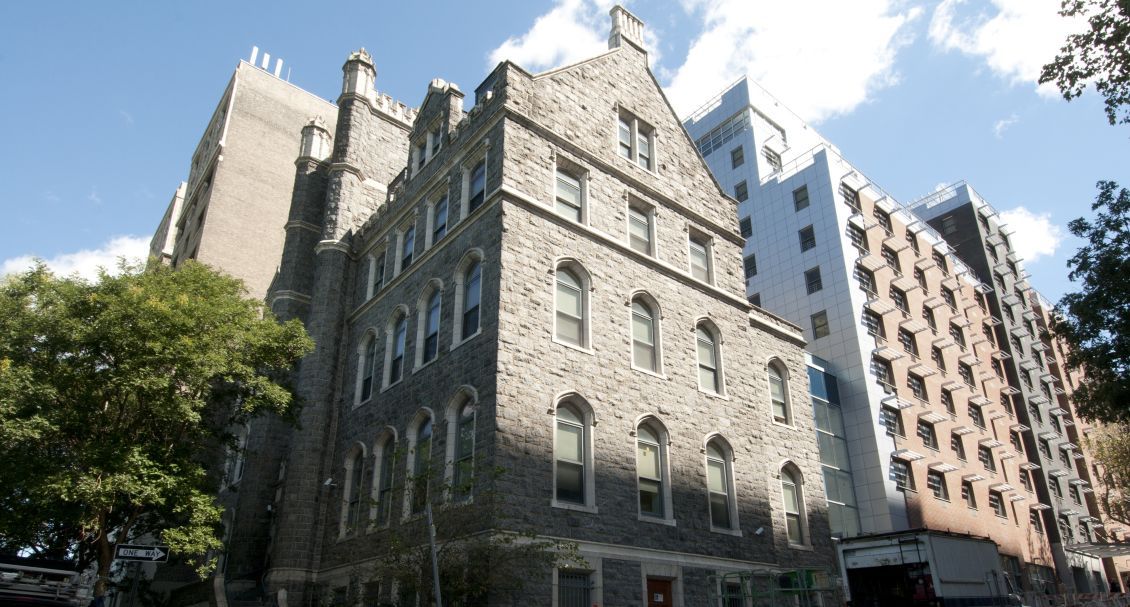Formerly incarcerated people are 10 times more likely than the general public to become homeless. That statistic reflects a number of factors, including the affordable housing shortage, discrimination, and difficulty qualifying for housing programs. Despite such barriers, research also shows that a stable home can reduce recidivism rates and facilitate successful re-entry for people impacted by the criminal legal system.
Enterprise’s Housing as a Pathway to Justice (H2J) initiative aims to find promising housing models and expand proven solutions so people impacted by the criminal legal system have access to the full housing bundle as they return to their communities and rebuild their lives: housing stability; housing quality; housing affordability; neighborhood context; and housing that builds assets and wealth. Our work is centered on collaboration with partners, people with lived experience and other stakeholders in the housing field and criminal legal system.
To begin building a network of support and actionable pathways to help affordable housing providers better understand and serve the justice-impacted population across geographies, Enterprise recently launched the H2J National Toolkit in collaboration with the Fortune Society. This new digital resource seeks to educate the affordable housing industry on fundamental barriers, identify opportunities, improve equity for justice-involved individuals, and highlight innovative approaches to address existing gaps.

at the Fortune Society.
I recently spoke with Benjamin Metsch, chief strategy officer at the Fortune Society. With over 20 years of legal experience and deep knowledge of complex real estate transactions, he is responsible for overseeing Fortune’s housing development activities as well as Fortune’s contracts and risk management program.
Brianna McClure: What brought you to this work and what keeps you motivated to continue working to find solutions?
Ben Metsch: As I learned more about re-entry from incarceration, it became very apparent to me that the housing options for individuals returning from prison were very limited. It also struck me that a person will not be able to successfully re-enter society if they are not stably housed.
I wake up every morning thinking about how we, as a society, can create these desperately needed housing opportunities.
Additionally, through my work at Fortune, I witnessed the transformative power that access to quality and safe housing has on people's lives. With that in mind, I wake up every morning thinking about how we, as a society, can create these desperately needed housing opportunities for this population.

at Enterprise.
Brianna: Why is quality, affordable, and stable housing important for people impacted by the criminal legal system?
Ben: Quality affordable and stable housing provides the foundation for people to be able to take care of various issues.
We know that a fundamental part of successful reentry is access to safe housing. It is almost impossible for someone to think about getting a job, educational opportunities, mental health, and substance use treatment if they don't have a place to sleep at night that they know is safe. Homelessness is hugely traumatic and the options for people who have this type of criminal legal involvement are not great.
Brianna: Why did Fortune step up to collaborate with Enterprise on creating a toolkit about developing housing for people involved in the criminal legal system?
Ben: There is a desperate need for housing for individuals who have criminal legal involvement. From our own practice as a service provider, we have waiting lists of people who cannot get access to affordable housing.
We know from our work that there are structural barriers that prevent individuals with a criminal legal history from accessing market-rate housing and the general supply of apartments because there is, unfortunately, a large amount of discrimination from landlords who will not rent to someone who has a criminal justice history. That creates a huge problem for people coming back from incarceration, and many end up in a shelter or living on the streets. These are all things that will unfortunately lead to someone returning back to prison or jail.
This toolkit is of great importance to Fortune, because we know that we can't do this ourselves. It'll take an effort of many different nonprofits to be able to develop housing that will meet the need.
Brianna: What do you hope for housing providers to take away from this toolkit?
Ben: Many nonprofits look at housing development idea for people with a criminal legal history and immediately think, “Wait! This is way too complicated. This is beyond our ability to do it.” It’s something we as housing providers get immediately scared of.
What we wanted this toolkit to present to other nonprofits and property developers is that it's not that scary and that it can be done. And, there are different ways to do it.
Our hope is to see many more nonprofits jump into this space and provide that housing, and to do this work as it is sorely needed. We hope that Fortune can provide other nonprofits with a model for how you can build such a program.
Solutions are not just going to come from the government; solutions will have to come from nonprofit and for-profit developers. This is an all-hands-on deck problem that requires everyone's effort and we wanted to convey that message in the toolkit.
Brianna McClure is a program officer at Enterprise, based in New York.
